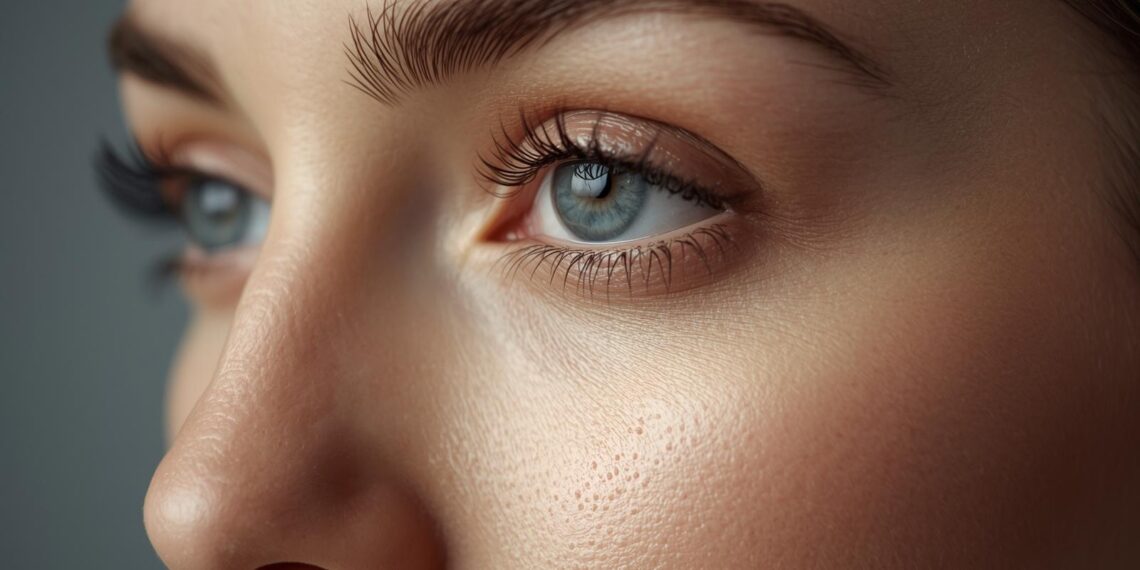In the ever-evolving landscape of wellness and beauty, under-eye fillers have emerged as a popular solution to combat tired-looking eyes and restore a youthful appearance. As a perceptive analyst of contemporary lifestyle trends, I aim to provide a clear understanding of the risks and considerations associated with under-eye fillers. This article will delve into the intricacies of dermal fillers, particularly hyaluronic acid fillers, and offer insights into the broader cultural and economic implications of this beauty trend.
Under-eye fillers, primarily composed of hyaluronic acid, are a type of dermal filler used to rejuvenate the area beneath the eyes. They work by adding volume and smoothing out hollows that can create dark circles or a sunken appearance. The procedure is minimally invasive and offers a quick fix for those seeking to enhance their appearance without undergoing surgery.
Hyaluronic acid is a naturally occurring substance in the body, known for its ability to retain moisture and promote skin elasticity. This makes it a preferred choice for fillers, as it integrates well with the body’s tissues and provides a natural-looking result. The effects of hyaluronic acid fillers are temporary, typically lasting between six to twelve months, allowing individuals to adjust their treatment as needed.
While under-eye fillers offer many benefits, they are not without risks. It is essential for individuals considering this treatment to be aware of potential complications and to consult with qualified professionals.
Some common side effects of under-eye fillers include bruising, swelling, and redness at the injection site. These are generally mild and resolve within a few days. However, more severe complications can occur if the filler is not administered properly.
One of the more serious risks is the potential for vascular occlusion, where the filler inadvertently enters a blood vessel, leading to tissue damage or, in rare cases, blindness. It is crucial to choose a skilled and experienced practitioner to minimize these risks.
Repeated use of fillers can lead to changes in the skin’s texture and elasticity over time. Individuals should consider the long-term implications and the possibility of needing additional treatments to maintain their desired appearance.
The rise of under-eye fillers reflects broader cultural and economic trends in the wellness industry. As beauty standards continue to evolve, so too does the demand for treatments that promise quick and effective results.
Social media platforms have played a significant role in popularizing under-eye fillers. Influencers and celebrities often share their cosmetic journeys, normalizing these procedures and driving consumer interest. This has led to an increase in demand, particularly among younger demographics seeking to emulate their favorite personalities.
The growing popularity of under-eye fillers has contributed to the expansion of the cosmetic industry. As demand increases, so does the development of new products and techniques, creating economic opportunities for wellness product developers and practitioners. However, it also raises questions about accessibility and the ethical implications of promoting such treatments.

For those considering under-eye fillers, it is essential to make informed decisions based on reliable information and professional guidance. Here are some key considerations:
Selecting a qualified and experienced practitioner is crucial in minimizing risks and achieving the desired results. Look for professionals with a proven track record and positive patient reviews.
Before undergoing treatment, ensure that you understand the procedure, including potential risks and expected outcomes. A thorough consultation with your practitioner can help set realistic expectations and address any concerns.
While under-eye fillers are an effective solution for many, they are not the only option. Individuals may also consider alternative treatments such as topical creams, laser therapy, or lifestyle changes to address under-eye concerns.
Under-eye fillers represent a significant trend within the wellness and beauty industry, offering individuals a means to enhance their appearance with minimal downtime. However, it is essential to approach these treatments with caution, considering the potential risks and broader implications. By making informed decisions and understanding the cultural and economic context, individuals can navigate the complex landscape of modern beauty trends with confidence.
As the wellness industry continues to evolve, staying informed and adapting to new developments will be key for anyone involved in this dynamic field. Whether you are a wellness product developer, lifestyle magazine editor, or health and wellness coach, understanding the nuances of treatments like under-eye fillers can help you better serve your audience and contribute to the ongoing dialogue surrounding beauty and wellness.




